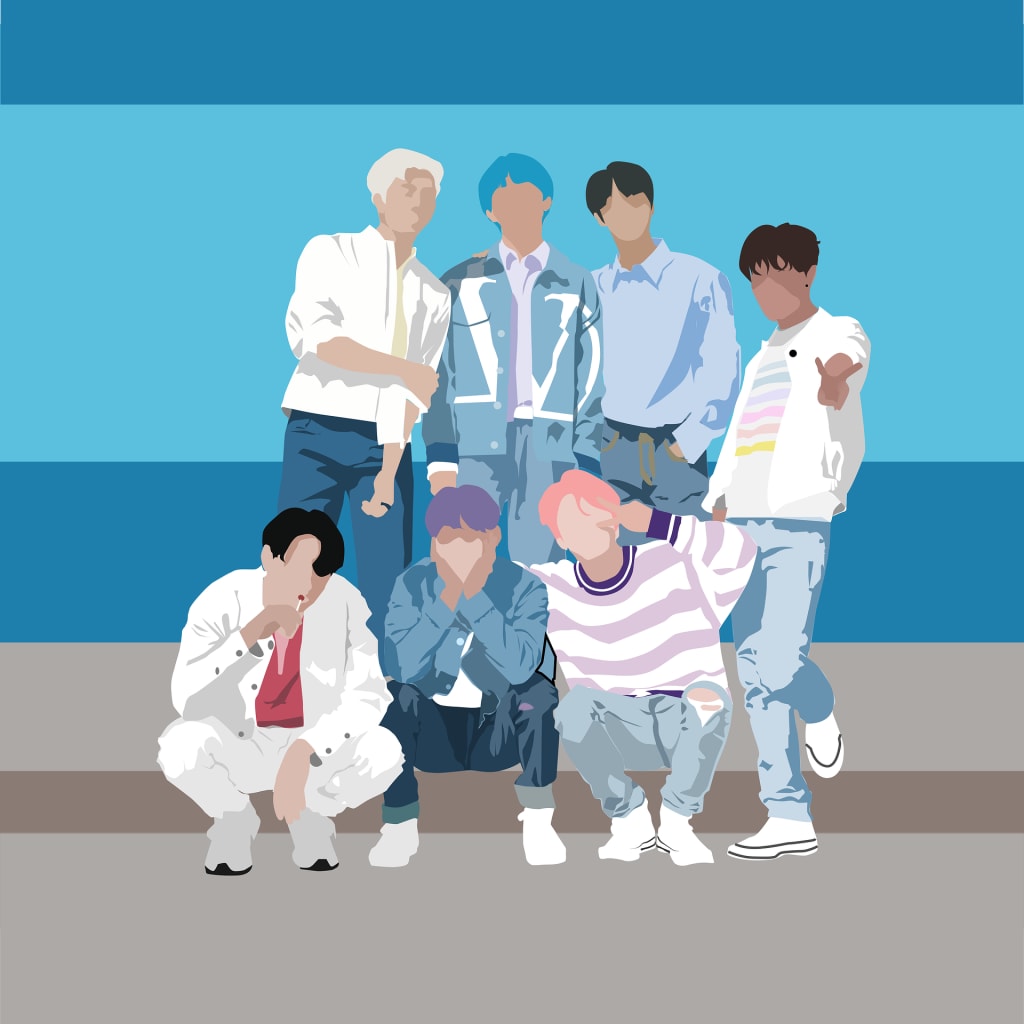How BTS Became One of the Most Popular Bands in History
BTS Lovers

I’ve long been hesitant to write about BTS. When reporting on South Korea, I resisted the expected topics: Korean skin care, plastic surgery, dogmeat, and, yes,K-pop.I absorbed Western critiques of K-pop’s girl and boy bands: that they’re fluffy, manufactured, and exploitative of their members—as if the same weren’t true of New Kids on the Block. But, earlier this year, BTS became inescapable. The group was everywhere, and everyone seemed to be into them. To continue ignoring the BTS phenomenon was to risk missing something bigger than Beatlemania.
I first glimpsed the swell of hallyu, the Korean wave, a decade ago. In the winter of 2012, I was writing a story about Latina day laborers in Brooklyn who cleaned Hasidic homes before the Sabbath—when women’s work accumulated to the point where outsourcing became necessary. I had heard that many employers paid low wages or didn’t pay at all; some workers reported verbal abuse and sexual harassment. Standing among the women on a street corner in a black puffy coat, I tried to make conversation in my terrible Spanish. One morning, a worker approached me and asked, apropos of nothing, if I was Korean—not “Chinese or Japanese?” This precision was new. When I said yes, she beamed. “My daughter—she loves Korea,” she said. “She loves K-pop.”The woman took out her phone and had me speak with her daughter, Karina, a young mother and deli worker in New York. Karina wanted to learn Korean so she could better understand the lyrics of boy bands such as Super Junior and SHINee. I agreed to teach her, and, in exchange, she agreed to be my interpreter.
Three years later, a friend on Long Island told me that teen-age twins who she’d met in town were obsessed with all things Korean. Like Karina, they were the daughters of Latino immigrants and bilingual in English and Spanish, but it was Korean that they wanted to know. They’d taught themselves the basics, and began texting with me in short bursts of Hangul, with emojis and exclamation points. When I invited them over for a home-cooked Korean meal, they brought along a friend, another Latino Koreaphile, and a Korean cake garlanded in candied fruits.A few years after that, my parents and I were on a ferry in Greece, during a trip to celebrate their fortieth wedding anniversary, when a young Greek man in shorts came up to us, smiling broadly. “Are you Korean?” he asked. “I love your culture. K-pop!” He asked us to speak Korean, as though he might inhale the sounds along with the salty sea air. Korea was trendy. It had successfully hawked its cultural wares in the global marketplace. Still, I knew nothing of its best-selling product: BangTanSonyeondan, a.k.a. BTS.
A friend warned, at the start of my BTS journey, “This is the hardest story you’ve ever done.” What he meant was that there was so much material (nine years of music, dancing, articles, and tweets) and so much potential to get things wrong (a staggeringly rich subculture and legions of fervent, fact-checking fans). In April, BTS was performing in Las Vegas, as part of a short international tour—the band’s first live shows since before the pandemic. I bought an overpriced resale ticket and started to cram.
Acquaintances who proudly identify as members of BTS’s army—which stands for “Adorable Representative M.C. for Youth” and describes both individual fans and its fandom worldwide—delighted in making recommendations. They sent links to music videos, concerts, and the band’s self-produced variety show, “Run BTS,” of which there are more than a hundred and fifty episodes. I tried out fan-made choreography tutorials (embarrassing but fun) and watched mini-lectures to learn the seven members’ names. I scrolled through Twitter fan accounts, read BTS monographs, and listened to a podcast called “BTS AF.” On the last day of May, Asian American heritage month, the boys appeared at the White House for a careful mix of politics lite and P.R., condemning “anti-Asian hate crimes” (in Korean) and making finger hearts with President Biden in the Oval Office.
Then, on June 14th, just days after releasing a new album, BTS made a shocking, if not unexpected, announcement. In a video to celebrate their ninth anniversary, the members sat around a long, lavishly appointed dinner table, in the style of da Vinci’s “The Last Supper.” All was festive—wine and crab legs and laughter—until minute twenty-one. SUGA, one of the band’s rappers, said, “I guess we should explain why we’re in an off period right now.” A sober go-around followed: the members were tired; they wanted to try new things, each on his own. They cried. Many armys concluded that BTS was going on hiatus, and some feared a breakup. Hours later, after the stock price of the band’s parent company fell by nearly thirty per cent, the band member RM issued a statement of reassurance. The members were simply taking a break to pursue solo projects. “This is not the end for us,” he said.
About the Creator
Hasnat Hijazi
I'm a talented writer with a passion for creative expression. With a range of skills from article to thought-provoking essays, bring a unique blend of skill and passion to any project. #vocalmedia #writer #creativity






Comments
There are no comments for this story
Be the first to respond and start the conversation.